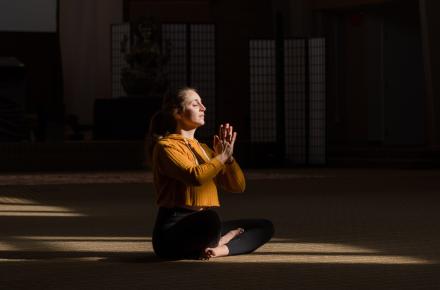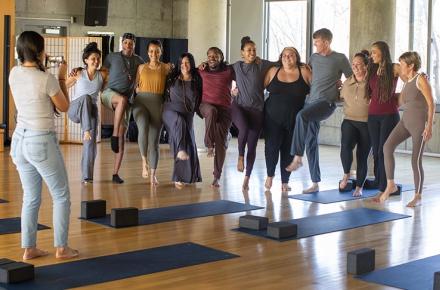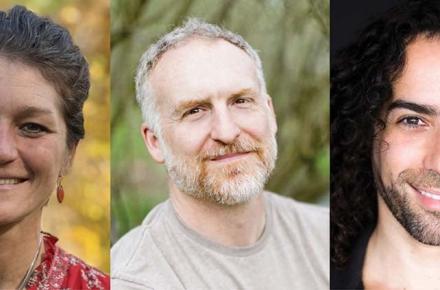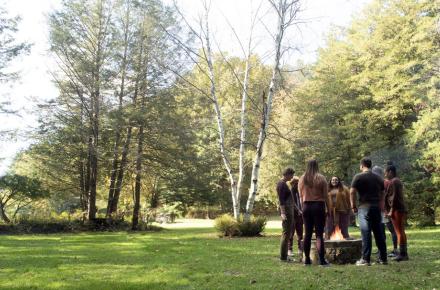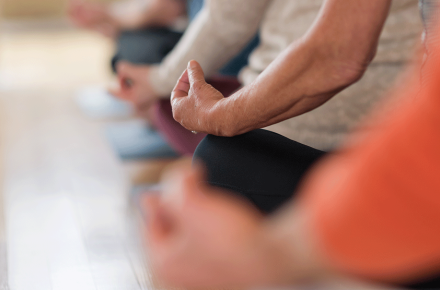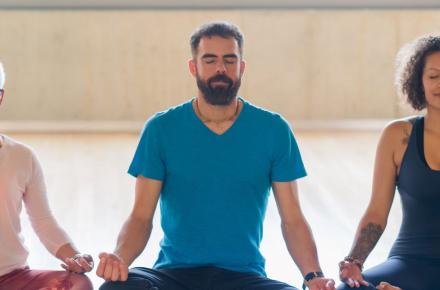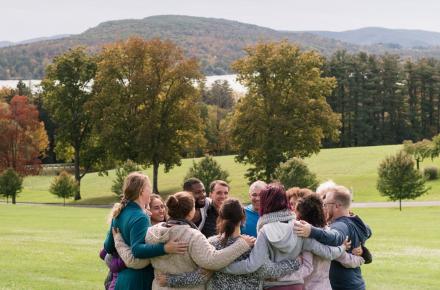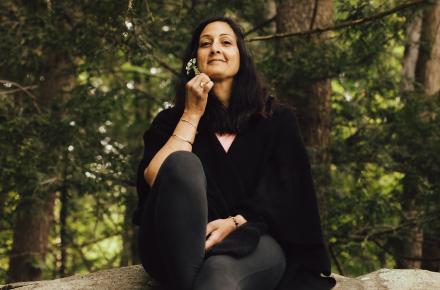THIS IS YOGA | Living Yoga, Off the Mat

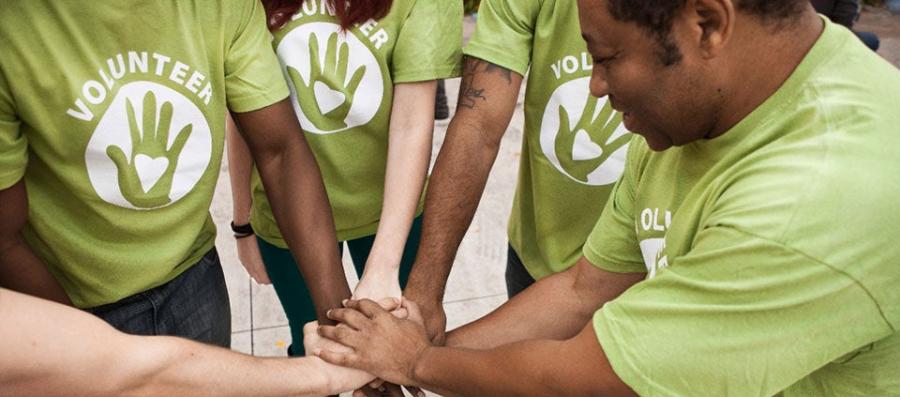
This is a time for change. This is an opportunity. This is Yoga. We invite you to explore the second in a series of readings from Kripalu in which we will share how yoga’s ancient wisdom provides guidance on mindful action in a world in turmoil.
October 27, 2020
What can a centuries-old philosophy from far across the world teach us in 2020? A great deal, actually. In particular, the lessons we refer to as ‘yoga off the mat’.
You may have heard it said that how you show up on the mat is how you show up in your life. Yoga instructs us to open our minds and hearts before turning to inquire within. In the same way that we scan our body to discover the nature of our presence, we must observe without judgement our thoughts and feelings. This is how we find truth.
In my previous blog of this series, I discussed the yogic view on the value of discomfort. We live in a time when self-inquiry may prompt discomfort in the form of difficult questions, questions that require an expansion of perspective. For example, in our Race and Resilience program on anti-racism, white participants are taught to examine practices of self-accountability, to observe the ways in which our own overt or unconscious biases and influences shape the fabric of our human networks and communities. This is important work.
Act accordingly
Cultivating a practice of self-inquiry strengthens our inner voice and also guides us to Service—one of yoga’s greatest lessons. Kripalu’s namesake, Swami Kripalu was a yoga master renowned for the depths of his compassion. He saw service to self and others as a natural outgrowth of love, as well as an effective tool for one’s own personal and spiritual growth.
Swami Kripalu’s life reflected his reverence for the Yamas, the ethical vows that lead to a more compassionate and just life. Yamas, such as Asteya, or non-stealing, are relevant and instructive today as we grapple with issues of social justice. Asteya is defined in Hindu scripts as "the abstinence, in one's deeds or words or thoughts, from unauthorized appropriation of things of value from another human being."
When people are robbed of their rights, whether it’s the right to vote, the right to be treated fairly in the eyes of the law regardless of race, gender, ethnicity, or who they love, we must act. Unauthorized appropriation is a form of stealing, as well. We must make certain that traditions adopted from another culture, such as yoga for westerners, are practiced respectfully, and attributed to their roots with appreciation. At Kripalu, now more than ever, we are committed to the original intent of yogic philosophy to actively create a peaceful, more compassionate world.
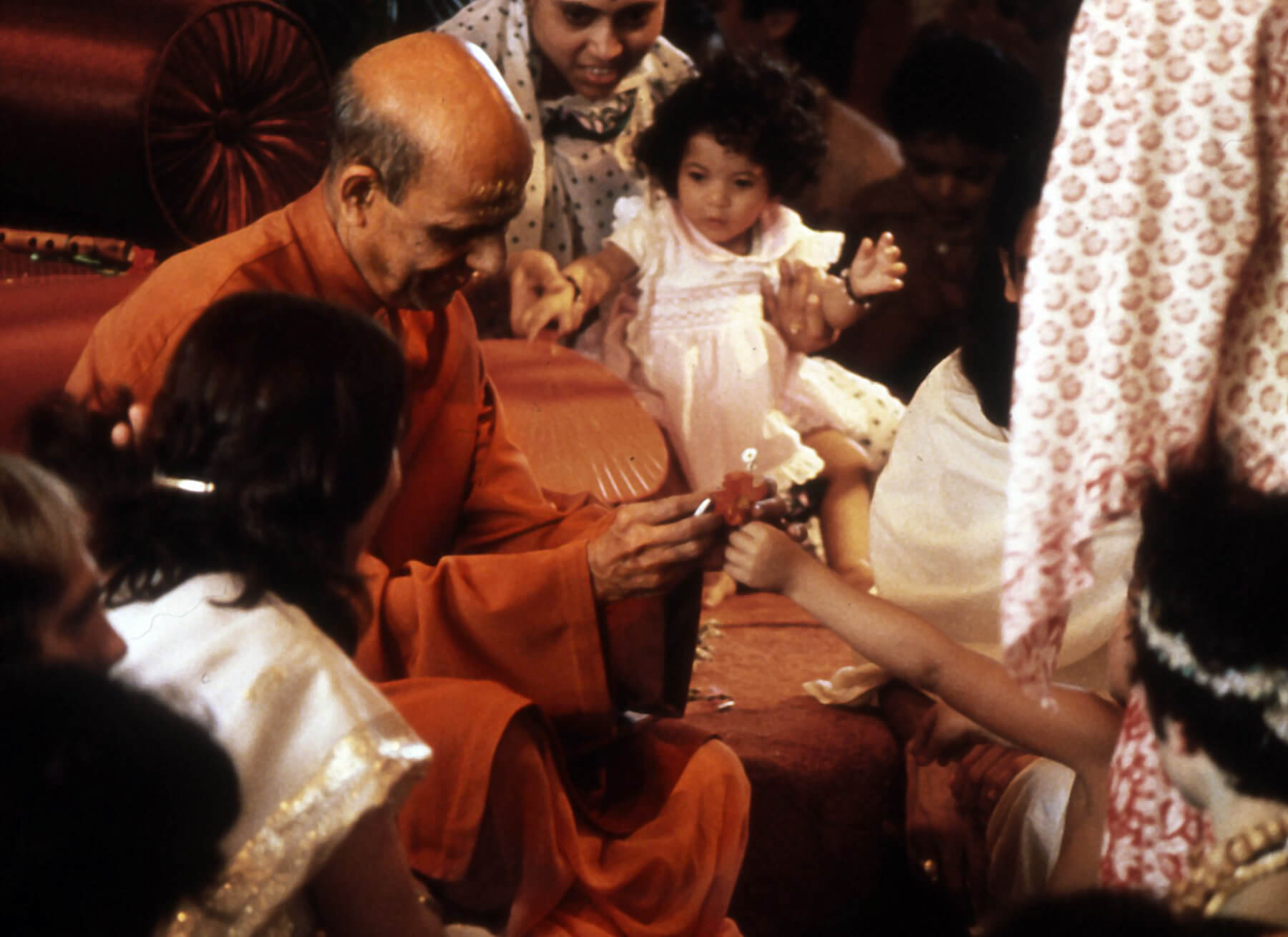
Practice, practice, practice
It may be one of the more obvious principles of yoga, but in this context, it definitely bears special attention. Living with integrity, being present with discomfort, inquiring within, embracing compassion, and serving others—all of this must become our practice. No matter what happens on November 3rd or beyond, we must continue the work. Indeed, this may be the most profound lesson yoga has to teach us in this moment.
Here are some resources to inspire your practice:
ACLU
NAACP Legal Defense and Educational Fund
Southern Poverty Law Center
Color of Change
Greenpeace
Environmental Defense Fund
Institute for Sustainable Energy
National Organization for Women
UN Women
League of Women Voters
We invite you to share your feedback in this continued discussion on the role of yogic philosophy in the modern world. This is a conversation that welcomes all voices and backgrounds and we encourage conversation. Please reply via this secure form, and know that while we read every response, we do not have the ability to reply to all entries.








